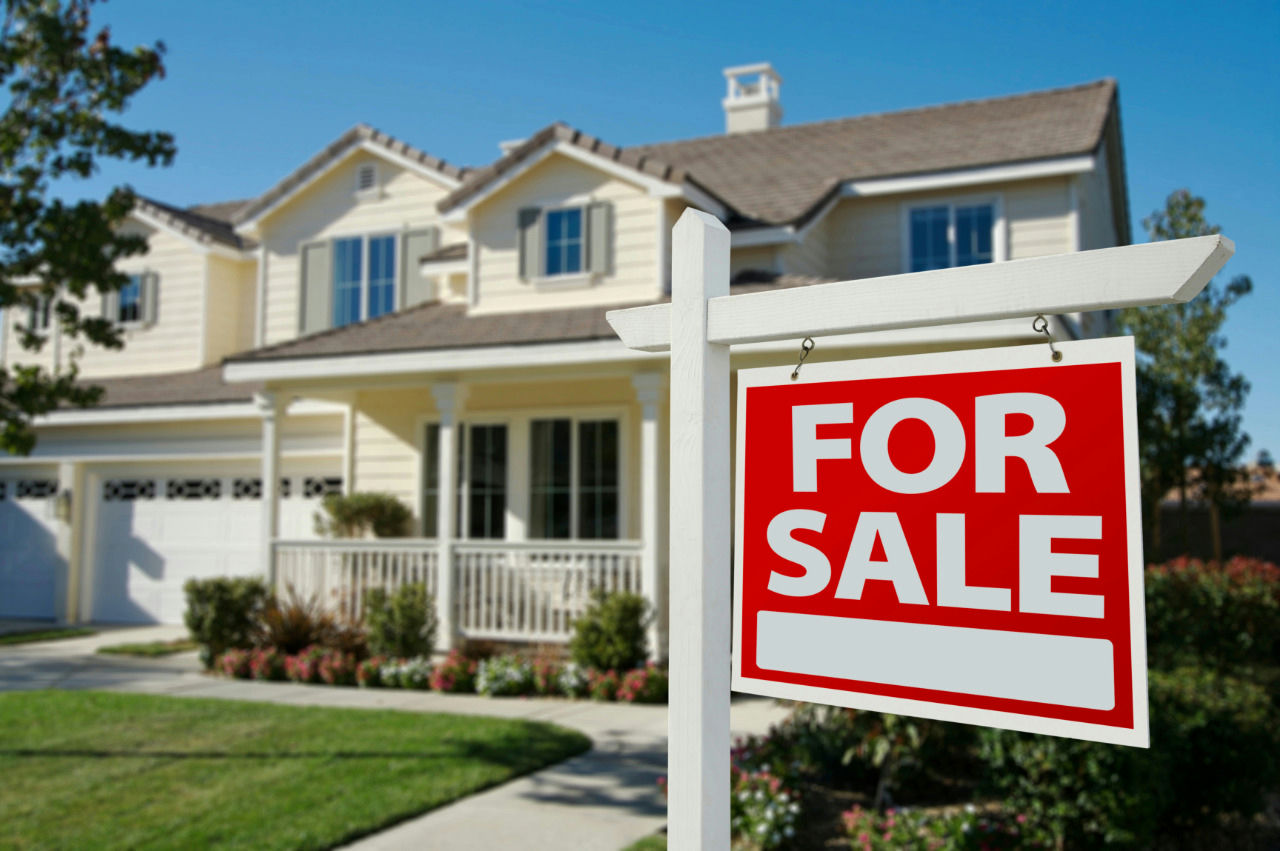An open house is a prearranged event where a property on sale is open to the public for viewing. It’s usually hosted by the real estate agent representing the seller and allows potential buyers to tour a property without booking an appointment or any obligation. This guide will cover everything you need to understand about open houses, including their objectives, preparations, and various types.
Why Open Houses are Held
In the realm of real estate, open houses play a critical role in connecting buyers and sellers. They are a strategic tool used to provide a real-time, in-depth look at a property, offering potential buyers a tangible experience that virtual tours or photos can’t match. But what exactly are the primary goals of an open house? Here are some key purposes:
Attracting potential buyers
Open houses offer the property exposure, attracting a broader range of potential buyers. They can be an effective method for sellers to showcase their home to multiple people simultaneously, potentially expediting the selling process.
Engaging with interested parties
Open houses enable sellers and their agents to engage with interested buyers, answer queries, and obtain feedback on the property. This can be especially useful for assessing interest and tweaking marketing strategies if needed.
Increasing competition
By drawing in multiple interested parties, open houses can create a sense of competition among buyers, potentially leading to higher offers or a faster sale.
Types of Open Houses
When it comes to open houses, not all are the same. There are distinct variations that cater to different audiences and serve unique purposes. Understanding these differences is crucial for both sellers, who want to reach the right people, and buyers, who want to ensure they are attending the right type of open house for their needs. Here, we delve into the two primary types of open houses you’re likely to encounter:
Public Open Houses
Public open houses are the most familiar type and are open to anyone who wants to attend. These events are generally advertised online, in newspapers, or through real estate agents.
Broker’s Open Houses
Broker’s open houses are exclusive events where only real estate professionals are permitted to view the property. These events provide real estate agents and brokers a chance to preview a home for their clients and provide feedback to the seller’s agent. Broker’s open houses are typically held mid-week and can be a suitable alternative for sellers who are uncomfortable with the idea of a public open house.
Can You Attend an Open House Without a Realtor?
Yes, you can attend an open house without a realtor. Open houses are designed to be accessible to the public, and there is no requirement to have a real estate agent present. However, attending an open house with a real estate agent can offer several benefits, such as guidance on the property’s features, market trends, and negotiation strategies, especially for first-time home buyers.
Preparing for an Open House
Successfully participating in an open house, whether you’re a buyer or a seller, requires some preparation. It’s about more than just showing up or opening the doors to your property. For sellers, preparation might mean home staging or marketing efforts to attract potential buyers. Buyers, on the other hand, need to arrive ready to evaluate the property and communicate effectively with sellers or agents. This section provides a detailed look into the steps both sellers and buyers can take to ensure they are fully prepared for an open house.
Seller Preparation
As a seller, preparing your home for an open house can make a significant difference in how the property is perceived by potential buyers. The preparation process involves ensuring that your house is not only presentable but also enticing to buyers, thereby increasing the chances of a successful sale. Sellers can prepare for an open house by:
Home staging
This is an essential aspect of open house preparation. Staging involves a comprehensive cleanup of your home, removing clutter, and creating a sense of spaciousness. It might also entail rearranging furniture for optimal flow and appeal, and removing personal items to help potential buyers envision themselves living in the home. The aim is to create a neutral, yet inviting atmosphere that showcases the potential of your home.
Enhancing the home’s appearance
It’s all about the details when it comes to enhancing your home’s appearance. Small touches can significantly increase your home’s appeal. Consider adding fresh flowers for a vibrant, welcoming ambiance. Attend to minor repairs, such as painting over scuff marks, to present your home in the best light possible. Plumping pillows and tidying up the space can make the house look cozy and comfortable. It’s also advisable to remove family photographs to help potential buyers better visualize themselves in the home.
Marketing the open house
The success of your open house largely depends on the effectiveness of your marketing strategies. Utilize various channels to promote the event, including the brokerage’s website, social media accounts, and local neighborhood event pages. A well-publicized open house can attract a larger pool of potential buyers and increase your chances of a quicker sale.
Securing valuables
As your home will be open to the public, it’s crucial to safeguard your valuables. Before the open house, securely store away any valuable items, confidential documents, and prescription medications. This not only prevents potential theft but also protects your privacy. Remember, the focus of the open house should be on your property, not your personal belongings.
Buyer Preparation
For potential home buyers, preparing for an open house involves more than just showing up. It’s about making the most of the opportunity to explore a property, ask relevant questions, and evaluate whether it meets your needs and preferences. The right preparation can empower you to approach an open house with confidence and make an informed decision about a potential investment. Buyers can prepare for an open house by:
Obtaining pre-approval
One of the first steps a buyer should take before attending an open house is securing a mortgage pre-approval or having a verified approval letter ready. This document from a lender indicates that you are a serious buyer and provides an estimate of how much you may be qualified to borrow, based on a preliminary review of your financial information. Having this information in hand not only gives you a clearer understanding of what you can afford, but it can also give you a competitive edge when you’re ready to make an offer, as sellers often prefer buyers who have taken this step.
Bringing necessary documents
To further prepare for an open house, bring any documents your agent might need for potential paperwork. This could include a form of identification, proof of funds or pre-approval documents, and contact information. Having these documents ready can expedite the process if you decide to make an offer.
Creating a checklist
Given that you might visit multiple open houses during your home search, creating a checklist can be an effective tool for comparison and decision-making. Your checklist could include key considerations such as the home’s layout, the condition of the property, the neighborhood, and any other factors important to you. A checklist ensures you cover all the bases when touring a property and helps in comparing it to other homes you’ve visited. This way, you’re better equipped to make an informed decision about which property best suits your needs.
How to Find an Open House
You can find open houses in your area in several ways:
Online resources: Most open houses are listed on brokerage websites like TopFindRealty.com, social media accounts, or neighborhood event pages. Real estate apps and websites may also allow you to search for homes with upcoming open houses.
Local newspapers: Some open houses may be advertised in the real estate section of your local newspaper.
Real estate agents: Your real estate agent may provide you with information on upcoming open houses in your desired area.
Signs and flyers: Keep an eye out for open house signs and flyers in neighborhoods where you are interested in buying a home.
Tips for Buyers Attending an Open House
When attending an open house, buyers should keep the following tips in mind:
Arrive early: This can give you more time to explore the property and ask questions without feeling rushed.
Take notes: Write down your thoughts and observations about the property, as well as any questions you have for the seller or their agent.
Inspect the property: Take the time to thoroughly inspect the property, both inside and out. Look for signs of wear and tear, potential issues, or areas that may need improvement.
Ask questions: Don’t be afraid to ask questions about the property, the neighborhood, or any concerns you may have.
Be mindful of others: Remember that you are not the only potential buyer attending the open house. Be respectful of others’ time and space as they view the property.
Open House Etiquette for Sellers
Sellers hosting an open house should follow these etiquette tips:
Be presentable: Ensure that both you and your home are clean and tidy for the event.
Welcome guests: Greet guests as they arrive and thank them for attending.
Be available to answer questions: Be prepared to answer any questions that potential buyers may have about your property.
Allow buyers space: Give potential buyers the space to explore your home and form their own opinions.
Collect feedback: Use the open house as an opportunity to gather feedback from visitors on your home’s appearance and asking price.
Role of the Listing Agent in an Open House
The listing agent plays a crucial role in hosting a successful open house. Their responsibilities include:
Marketing the event: The agent is responsible for promoting the open house through various channels to attract potential buyers.
Preparing the property: The agent may assist the seller in staging the home and making any necessary improvements to enhance its appeal.
Hosting the event: The agent will be present at the open house to greet guests, answer questions, and provide information about the property.
Gathering feedback: The agent will gather feedback from attendees, helping the seller make informed decisions about pricing and marketing strategies.
Following up with potential buyers: After the open house, the agent will follow up with any interested parties to gauge their interest in the property and potentially facilitate the sale.
Pros and Cons of Open Houses
Open houses have both advantages and disadvantages for sellers and buyers.
Pros
Increased exposure: Open houses can attract a larger pool of potential buyers, increasing the likelihood of a sale.
Engagement: Open houses provide an opportunity for sellers and their agents to engage with interested buyers and gather valuable feedback.
Convenience: Open houses offer a convenient way for buyers to view multiple properties in a short period.
Cons
Security concerns: Hosting an open house can pose security risks, as strangers will be entering your home. Sellers should take precautions to protect their belongings and personal information.
Limited time: Open houses typically last only a few hours, which may not provide enough time for all interested buyers to attend.
Low conversion rate: While open houses can attract many potential buyers, not all attendees are serious buyers, meaning the conversion rate for open houses can be lower than private showings.
Conclusion
Open houses can be a valuable tool in the home buying and selling process, offering increased exposure, engagement, and convenience. By understanding the different types of open houses, preparing adequately, and following proper etiquette, both sellers and buyers can make the most of these events. Whether you’re a seller looking to showcase your property or a buyer searching for your dream home, an open house could be the key to a successful real estate transaction.









